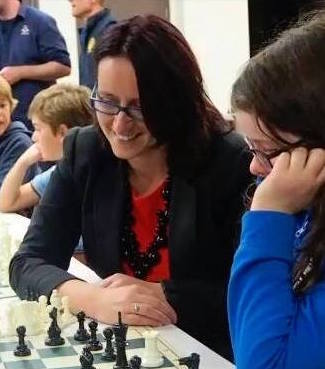How Chess can Help Children who have Autism
We know children learn at different rates and in different ways. For some children this road is a little more difficult, but fortunately there are quite a number of opportunities, resources and organisations that can help to make that journey easier to navigate. That does mean that the right fit for your child needs to be found, because not all learning difficulties are the same.
What is Autism Spectrum Disorder
One of the most described disorders that we come across when speaking to parents and students are around Autism. So what is Autism Spectrum Disorder?
Autism Spectrum Disorder (ASD) is a diagnostic term used to describe a lifelong condition that affects the way an individual communicates with others around them and how they relate to others. It is a neurological disorder, not a mental health condition.
In 2012, data held by Autism SA revealed the rate of autism in South Australia was 1 in every 82 children. Data on school age children indicated an even higher prevalence, with 1 in 29 boys aged 10 years registered as a client of Autism SA.2.
Teaching chess to someone with autism
As autism has become part of our vocabulary, we are starting to understand more about the amazing minds of students that are diagnosed within the spectrum of Autism and how they view the world.
I am sure it comes as no surprise to you that there are many students with autism that love the game of chess and are extending their skills thought the game. Teaching chess to these students has very little to do with rules of the game, it is much more about their development.
The key to teaching chess to someone with Autism is communication; creating a world so small that it becomes purely about the 64 squares in front of them.
Clear rules and structure provide the safety when they attempt this new game. You teach them how the different pieces move, providing evidence on how different rules apply for different, people depending on their role in life. And then suddenly you see it happen, which for me is the best part – a smile, the start of a conversation; first with the pieces in front of them and then with the face on the other side of the board.
They discover it is safe to talk about their plan of attack, how they will defend their king and what they will be doing next, with the person they are playing with. For those that have great difficulty in making new friends and holding a social conversation, they have just discovered a whole new world or people that they can interact with safely!
Chess becomes the bridge between two worlds
In an environment where it has become so easy to interact via electronic devices, it has made making new friends even harder.
The most popular comment we hear from students is, they like to play chess because it has allowed them to make new friends.
So how can you or your organisation provide an environment that is open to autism? In South Australia we have been very fortunate and are part of the Autism Friendly charter, which is supported by the NDIS.
What this means
With the autism and wider communities increasingly looking to Australian businesses to demonstrate their commitment to corporate social responsibility and community inclusion – and actively turning away from those that don’t – Autism SA has developed the Autism Friendly Charter to assist.
‘The Autism Friendly Charter provides a framework for business, organisations and services to become and maintain an autism friendly environment. This will ensure people on the autism spectrum and their families feel welcome and comfortable within the wider community.’
I suggest that you look to see if you have the opportunity to affiliate to an organisation in your state or whether an organisation is already promoting autism friendly environments, as we have seen first-hand it can make all the difference to how students learn.
We find teaching students with autism is one of our most rewarding parts of our roles.
About the Author
Sabrina was taught how to play chess by her father as a child.
She is now an assistant chess coach at Chess Life in Adelaide, South Australia, who helps beginners with the basics of the game and encourages parents to teach the skills to their children. Her main role lies in liaising with schools, parents and students regarding upcoming events and classes. She also maintains the website, social media and newsletter, ensuring everyone is updated on the achievements and upcoming events. Sabrina is the current Vice president for the South Australian Junior Chess League and editor for the Australian Junior Chess League. You can contact Sabrina via the website chesslife.com.au
About the Author
Sabrina was taught how to play chess by her father as a child.
She is now an assistant chess coach at Chess Life in Adelaide, South Australia, who helps beginners with the basics of the game and encourages parents to teach the skills to their children. Her main role lies in liaising with schools, parents and students regarding upcoming events and classes. She also maintains the website, social media and newsletter, ensuring everyone is updated on the achievements and upcoming events. Sabrina is the current Vice president for the South Australian Junior Chess League and editor for the Australian Junior Chess League. You can contact Sabrina via the website chesslife.com.au






